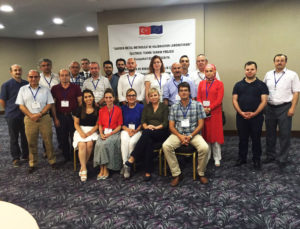
Strengthening the Internal Market
Project is comprised of six components, as follows: Component 1: Improving the strategic, legislative and institutional framework in area of Free Movement of Goods Component 2: Improving the strategic, legislative and institutional framework in area of Free Movement of Services. Component 3: Improving the legislative alignment with the

Technical Assistance for Establishment of MOBİTEK in Kayseri
The project’s overall objective is to increase the productivity and efficiency of the furniture manufacturing of small and medium enterprises (SMEs) in Kayseri and strengthen their product development and marketing capabilities.

Technical Assistance for Samsun Logistics Centre
The project was conceived, Turkey’s logistics network ranked 30th worldwide but offered much potential for improvement. With its strategic Black Sea location, seaports, airport and access to national rail and road networks, the Turkish city of Samsun was viewed as being in an excellent position to create a

Technical Assistance for the Operation of Samsun Metals Metrology and Calibration Laboratory
West black sea region of Turkey which the project named TR83 (Samsun, Çorum, Amasya, Tokat) Region, including Sinop, requires to be contributed through socio-economic development. Thus, the purpose of this contract was to strengthen the innovation and quality infrastructure of the metals industry in the TR83 Region. Laboratory’s

Technical Assistance for Gaziantep Regional Industrial Design and Modelling Centre (GETAM)
The Gaziantep region has great potential for several manufacturing areas; however, sometimes, it requires some support from well-qualified projects to achieve adequate results. Therefore, the overall objective of the project was to increase the competitiveness and economic welfare of the Gaziantep region. More specifically, it aimed to strengthen

Improvement of Legislation, Control and Awareness in Food Safety, Animal Health and Welfare in Ukraine
The project aims to support the implementation of the Association Agreement’s provisions between the EU and Ukraine concerning food safety, animal health, and welfare.

